
Five months into his second term as president, Americans are deeply unsatisfied with how Trump has handled the economy, immigration and tariffs. No wonder his approval rating is underwater.
Anyone who saw Donald Trump rally his supporters for reelection heard him make sweeping promises on three key pillars of his campaign ‒ improving the economy, deporting undocumented immigrants and penalizing other countries with tariffs.
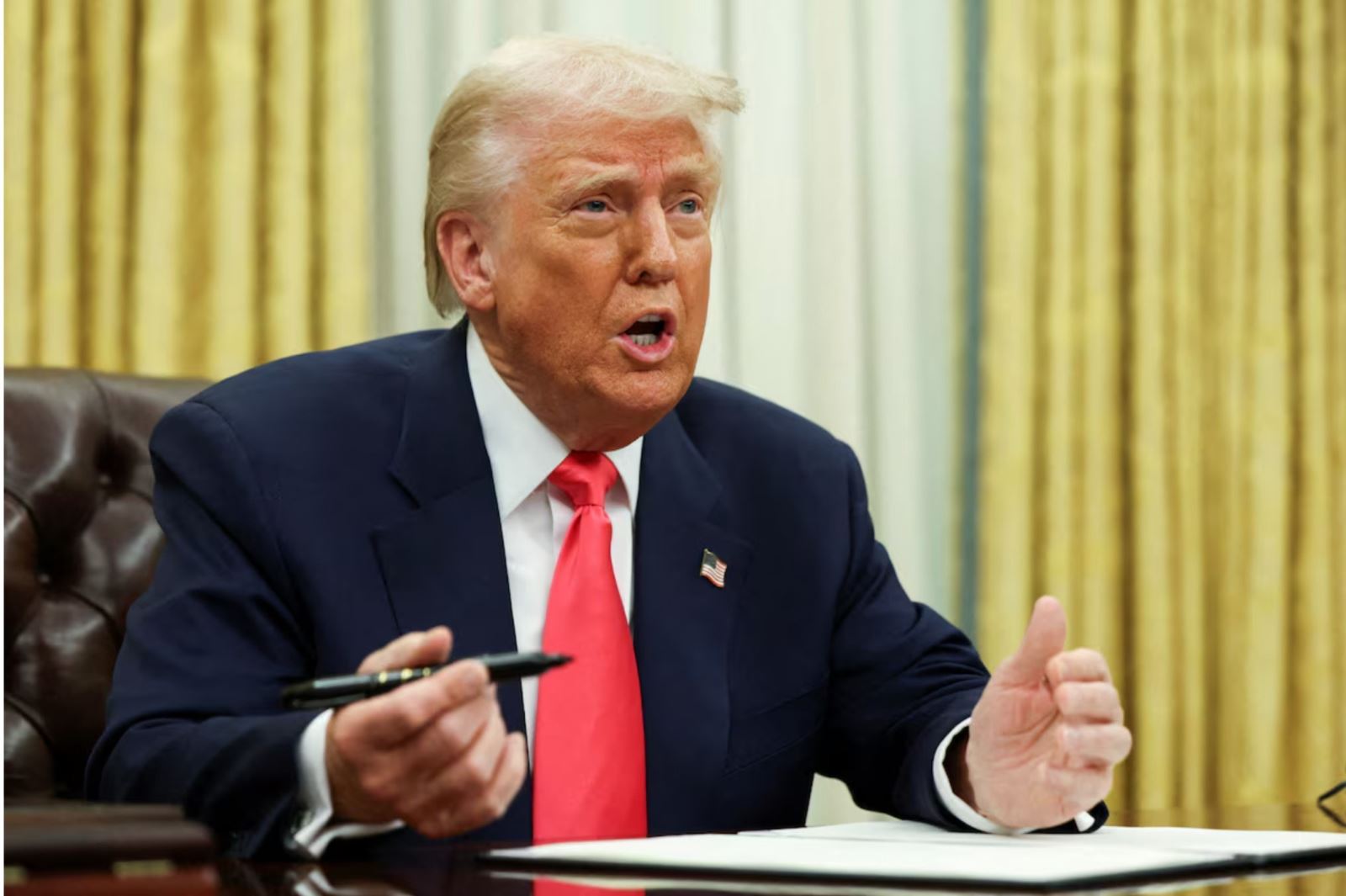
Five months into his second term as president, Americans are deeply unsatisfied with how Trump has handled those three issues, according to a new Quinnipiac University Poll released Thursday, June 26.
Immigrants have been Trump’s favorite boogeymen for a solid decade, ever since he declared his first run for president in 2015. And he found supporters by demonizing undocumented immigrants, winning elections in 2016 and 2024.
But now that Trump holds the power to deport those immigrants, as he repeatedly promised, Americans appear to be repulsed by what that looks like.
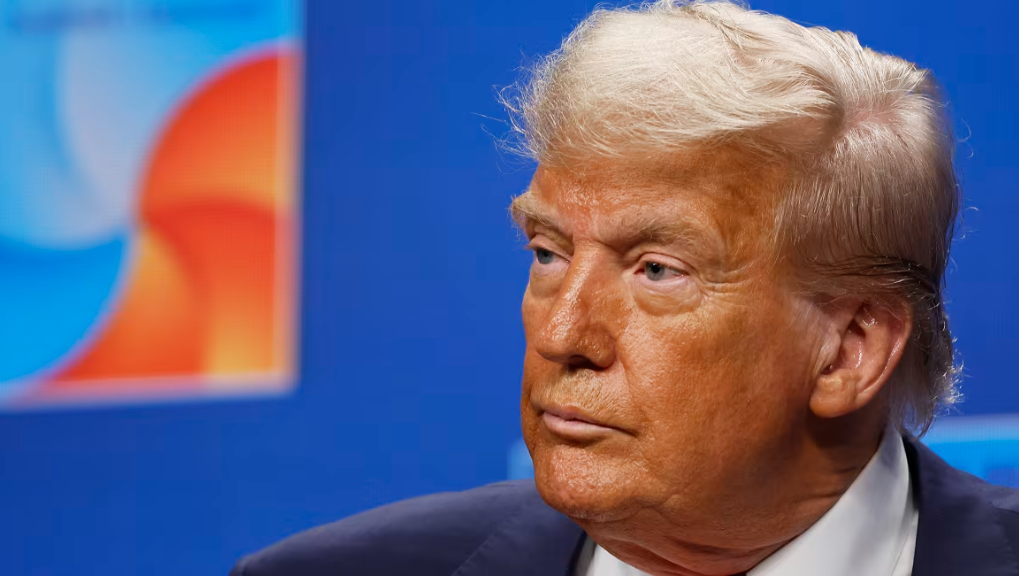
Turn on any television news broadcast or open any social media platform. You’ll see heavily armed men in masks, wearing body armor, refusing to show identification as they grab men, women and children ‒ sometimes with wanton and unnecessary violence ‒ on streets, in warehouses and meatpacking plants, and on farm fields across the country.
Unfortunately for Trump, Americans have some empathy

A Dec. 18 Quinnipiac Poll, released a month before Trump took office, found that 55% of registered voters preferred giving undocumented immigrants a pathway to legal status here in America, while 36% wanted to deport most of them.
Six months later, Quinnipiac finds a 9-point swing on the issue, with 64% now saying they want a pathway to citizenship and 31% still preferring deportation. It leaps off the page: a significant shift in public opinion that has to be attributed to Americans seeing Trump getting what he has always wanted when it comes to immigrants.
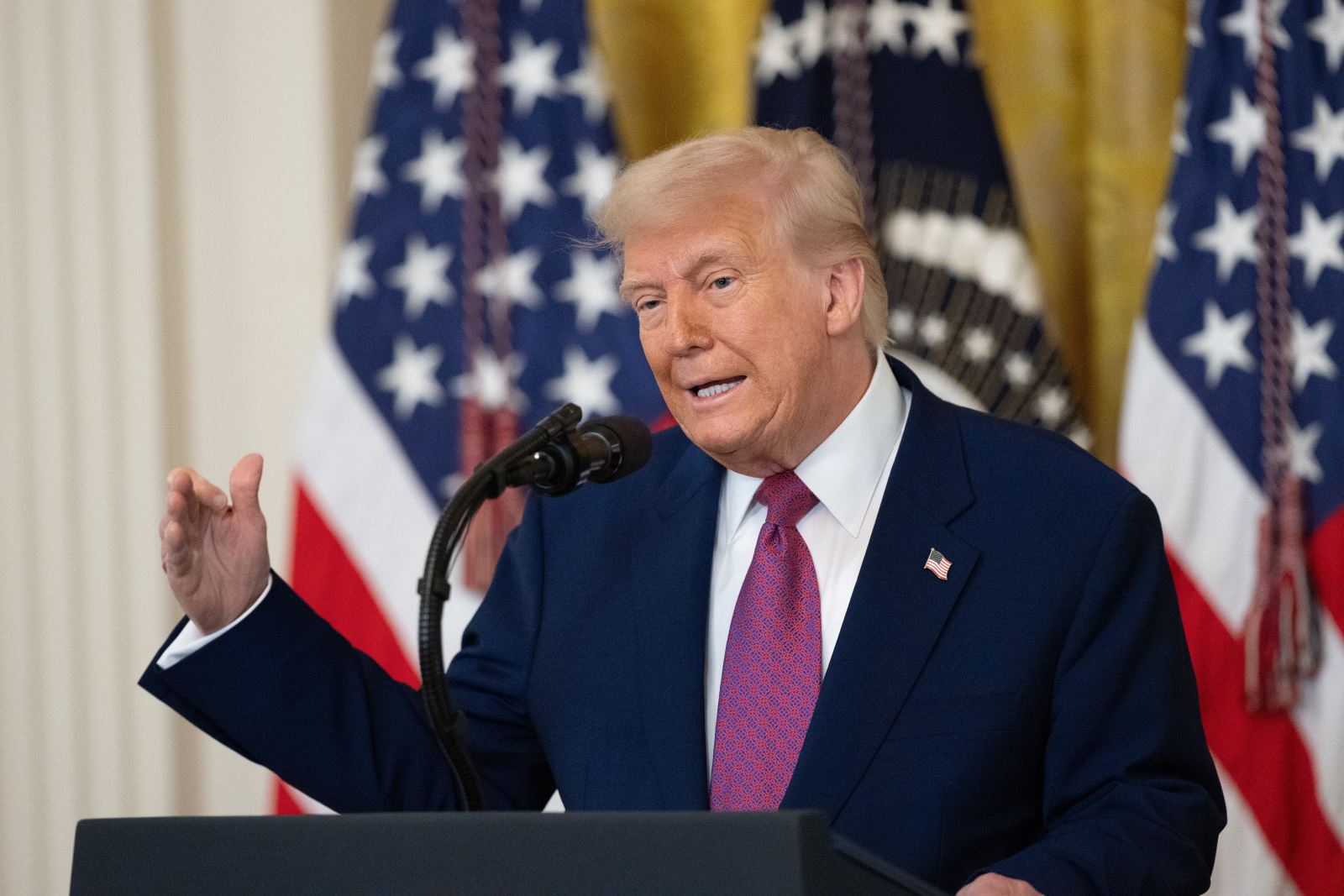
The poll also found that 56% disapprove of how Immigration and Customs Enforcement (ICE) is doing its job, while 39% approve.
ICE raids in California provoked protests that Trump tried to politicize by sending in the military. American voters don’t like that either, disapproving of deploying the Army National Guard by 55-43% and disapproving by 60-37% his decision to also deploy U.S. Marines.
Tim Malloy, a Quinnipiac University polling analyst, told me that “there’s a lot of empathy for people who want to stay here,” reflected in the poll, and that American compassion rings out even during a time of international turmoil and conflict.
“Keep in mind,” Malloy added, “this all happened in the midst of Gaza, Russia, and Iran, and yet those videos coming out of California of ICE raids in fields and Marines in LA top the news.”
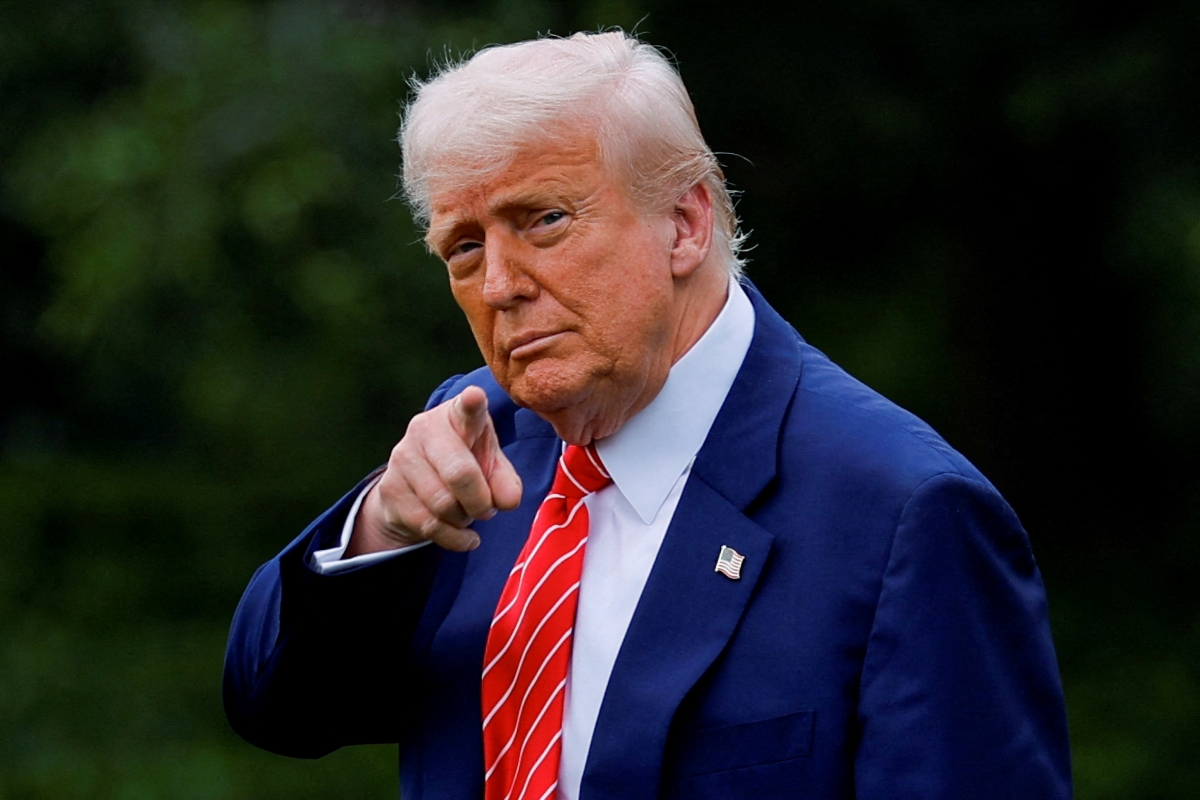
It turns out Americans also like democracy
Something else jumps out from the poll ‒ Americans are worried about America.
The economy was the top concern cited by voters in Quinnipiac Polls in late January (24%) and in mid-March (30%). But “preserving democracy” was the top concern in the June poll ‒ at 24% ‒ while the economic concern fell to 19%.
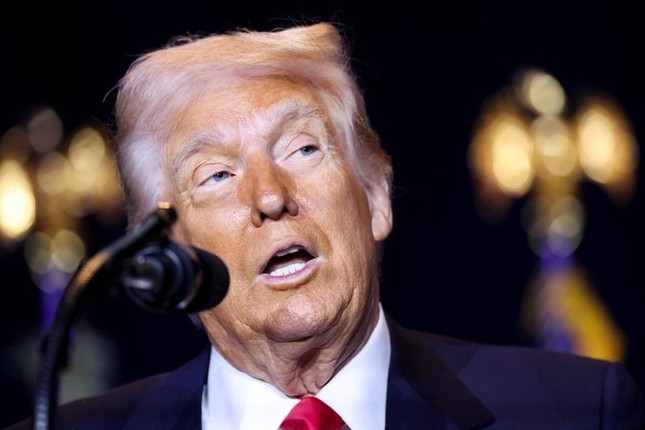
Malloy told me that’s the first time he’s seen “the economy eclipsed by concern about the very bedrock of the country.”
No wonder Trump’s approval rating is underwater, with 54% disapproving of the way he is handling the presidency and just 41% approving.
The June Quinnipiac poll also shows that on immigration, 57% disapprove and 41% approve. On the economy, 56% disapprove and 39% approve. And on trade, after Trump’s fruitless tariff wars with international allies, 55% approve and 38% disapprove.
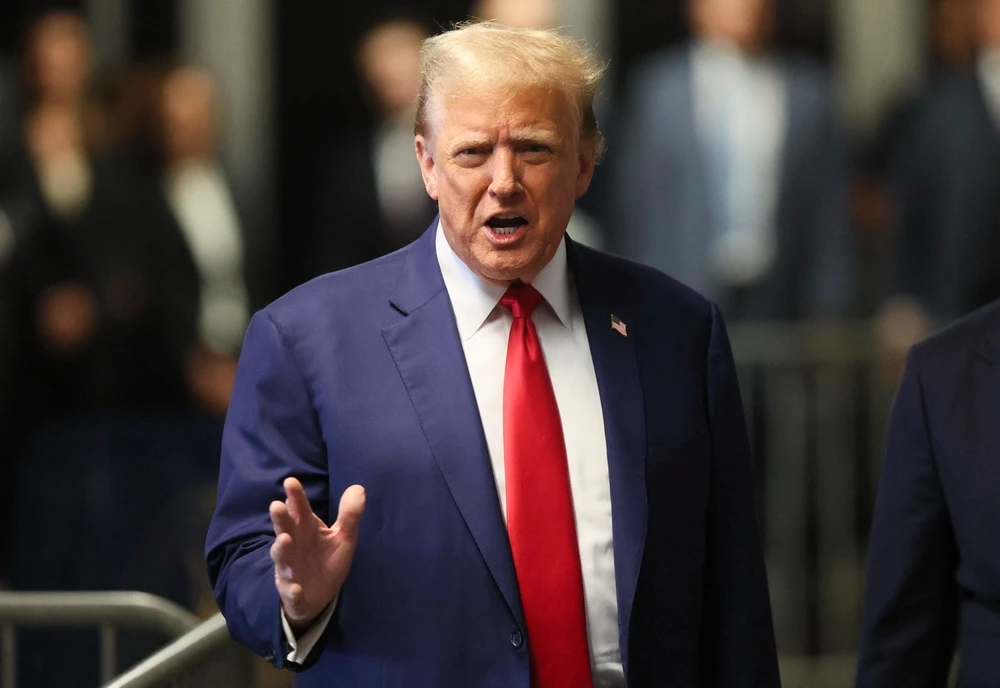
Trump’s signature policy proposal ‒ the so-called Big Beautiful Bill being batted about by Republicans in Congress to continue tax breaks for America’s wealthiest people while stripping health care from some of the poorest ‒ is also deeply unpopular, with 55% opposing it and 29% supporting it.
That tracks with recent polling, which shows the more people learn about the budget bill, the more they hate it.
Trump will spin his lies on poor polling, but the numbers won’t
Expect pushback from Trump and his supporters, who won’t like what Quinnipiac found in this latest survey. That’s to be expected. Trump always touts polls that tell him what he wants to hear and flouts polls that give him bad news.
So keep this in mind: On at least three occasions from late March to early June in 2024, Trump’s campaign emailed journalists news releases pointing to Quinnipiac polling that showed him performing well in the race for president. Trump, using his Truth Social platform while running for office, repeatedly bragged about Quinnipiac polls that pleased him and attacked Quinnipiac if he didn’t like a poll’s results.
A shorter version of that point ‒ you can’t trust anything Trump says about polling.
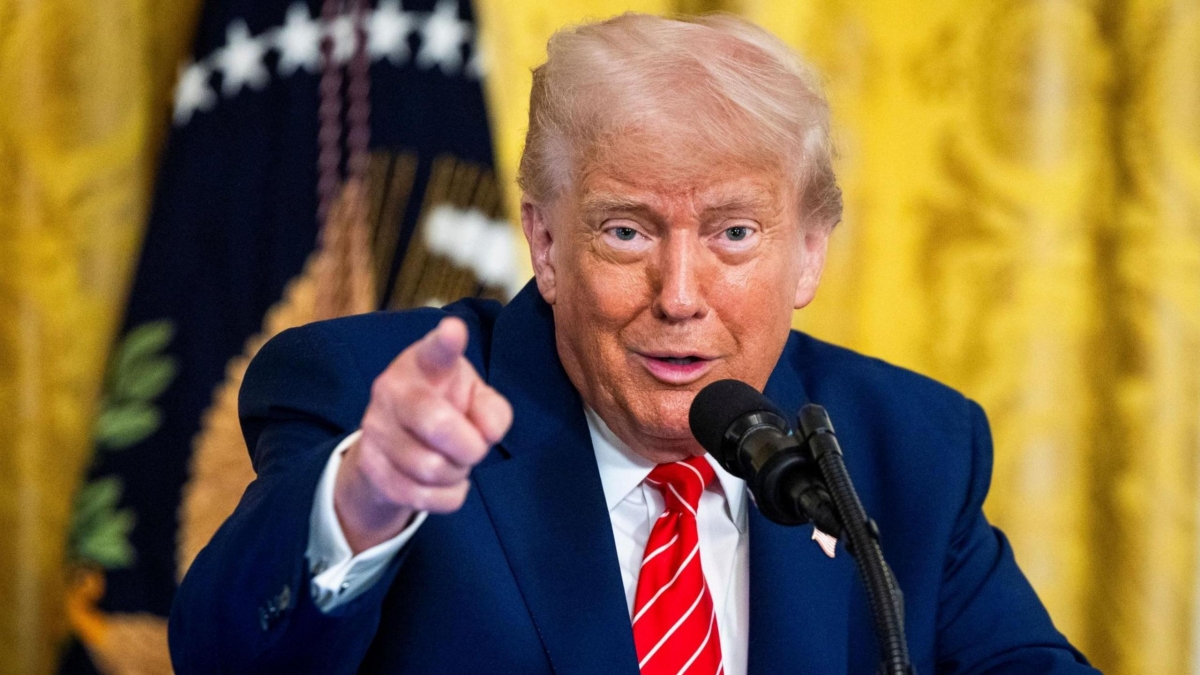
But, as Malloy noted, Trump has been in worse spots when it comes to the approval of Americans. His disapproval rating hit 60% in a Quinnipiac poll released Jan. 11, 2021, just five days after he incited supporters to storm the U.S. Capitol because he could not accept that he had lost the 2020 election.
I counted 41 times in Quinnipiac polls done monthly during Trump’s first term, from January 2017 to January 2021, when his approval rating was lower than in this new poll. Trump could take that as good news. I doubt he will.
But here’s another chunk of good news in the June poll ‒ Americans are clearly concerned about the state of America, but they don’t think our democracy will end during their lifetime: 49% said our democracy is not working, compared with 43% who say it is. But 73% think democracy will outlast this, while just 17% say it won’t.
“There are major domestic and international crises the country is facing,” Malloy said. “And, at the same time that we’re politically divided, there’s a belief that democracy will survive. And that’s heartening.”
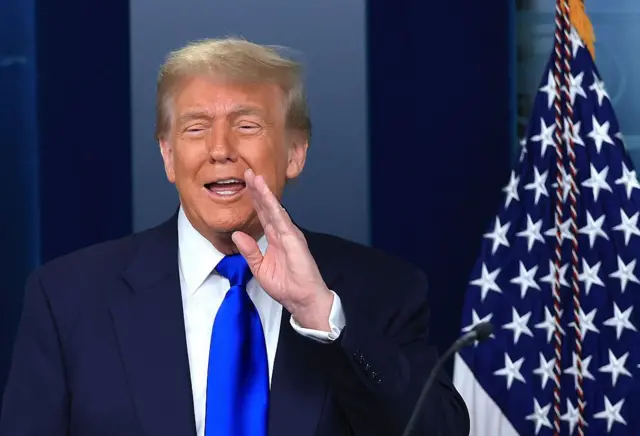
Federal judge blocks Trump’s immigration policy in shocking decision on Haitian protections
Judge claims DHS Secretary Noem ‘does not have statutory authority’ to modify TPS status for over 520,000 Haitians
.
A federal judge shot down the Trump administration’s efforts to end temporary protection status (TPS) for over 520,000 Haitian immigrants currently living in the U.S.
The TPS designations for Haitians were expected to expire on Aug. 3 with termination to become effective on Sept. 2.
U.S. District Judge Brian Cogan in Brooklyn rejected those plans on Tuesday, saying Department of Homeland Security (DHS) Secretary Kristi Noem did not follow a timeline and instructions mandated by Congress to reconsider TPS designations for Haitians.
In his decision, Cogan wrote, “Secretary Noem does not have statutory or inherent authority to partially vacate a country’s TPS designation.” Doing so, he added, made her actions “unlawful.”

“Plaintiffs are likely to (and, indeed, do) succeed on the merits,” Cogan added.
He went on to say Haitians’ interests in living and working in the U.S. “far outweigh” potential harm to the U.S. government.
That being said, the government is still able to freely enforce immigration laws and terminate TPS status as established by Congress.
Fox News Digital reached out to DHS for comment on the matter, but did not hear back by the time of publication.

A DHS spokesperson said Friday – before Cogan ruled on the matter – that the decision to end TPS ensures the status is in fact only temporary but also restores the integrity of the U.S. immigration system.
“The environmental situation in Haiti has improved enough that it is safe for Haitian citizens to return home,” the spokesperson said. “We encourage these individuals to take advantage of the Department’s resources in returning to Haiti, which can be arranged through the CBP Home app. Haitian nationals may pursue lawful status through other immigration benefit requests, if eligible.”
Noem originally made the decision to revoke TPS status from Haitians after reviewing a U.S. Citizenship and Immigration Services (USCIS) report showing the island nation no longer met the statutory requirements that grant foreign residents the ability to obtain TPS.

Sources at DHS have told Fox News that they are encouraging Haitians living in the U.S. with TPS to use the CBP Home application to secure a safe departure home by offering a complimentary plane ticket and a $1,000 exit bonus.
Congress created TPS as part of the Immigration Act of 1990, with the intention of allowing residents of countries who have faced war, disasters or other unsafe and extraordinary conditions, to find refuge in the U.S. The program has the ability to be extended in increments of 18-month periods.
The Trump administration has been pressing to roll back TPS designations to fulfill a campaign promise to strengthen the border and deport many illegal immigrants who crossed the border under former President Joe Biden’s administration.
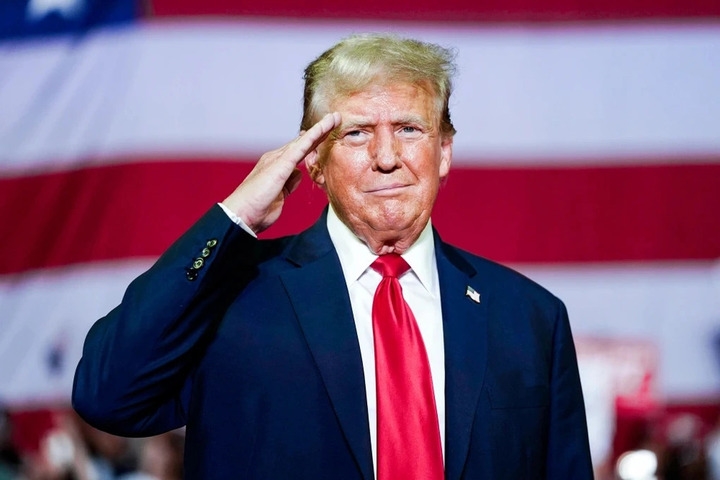
Biden gave Venezuelans TPS status in 2021, then renewed that designation before the end of his term in January 2025.
The newest designation will run from April 3, 2025, to Oct. 2, 2026. It is estimated the protection would have applied to about 300,000 Venezuelan nationals, before the Trump administration rolled back the decision.
Trump Is Breaking American Intelligence
Politicizing the System Makes Dangerous Failures More Likely
Speak plainly!” Russian President Vladimir Putin snapped at his foreign intelligence chief, Sergei Naryshkin, at a televised security council meeting on the eve of his shambolic full-scale invasion of Ukraine in February 2022. Naryshkin was visibly nervous. Once he had finally stammered out his support for recognizing the Ukrainian regions of Donetsk and Luhansk as independent states—the words Putin was waiting for—he was abruptly told to sit down, like an unprepared pupil flubbing an oral exam. Naryshkin’s apparent ambivalence about embracing Putin’s pretext for the war was likely due to the lack of solid intelligence that Putin’s “special military operation” would return Kyiv to Moscow’s imperial orbit. But rather than air any misgivings, Naryshkin chose compliance and conformity. The intelligence may have been hazy, but the risks of contradicting Putin were clear.
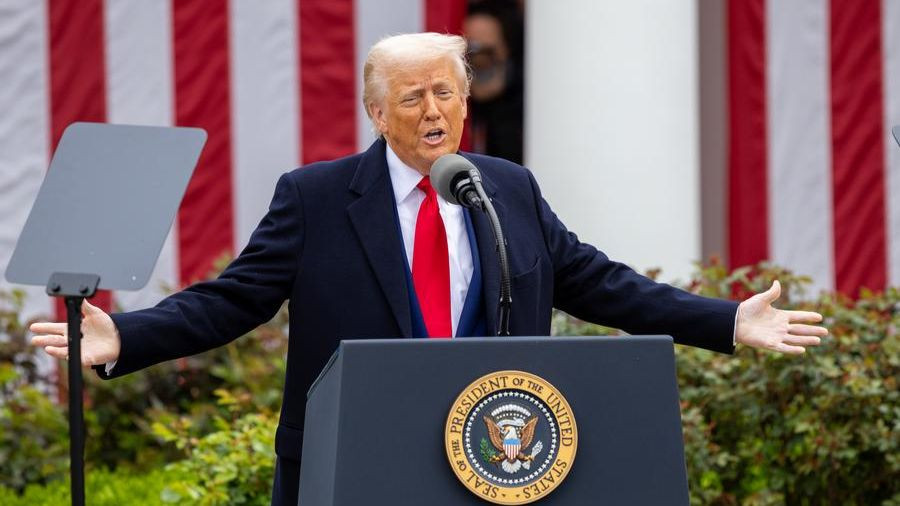
Putin’s unwavering belief that Ukraine would swiftly capitulate represents the greatest intelligence failure of his quarter-century tenure in power. He was furious when his invasion did not unfold as he envisioned, casting blame on and even arresting some senior security officials. But Putin had laid his own trap. Like many authoritarians, he had fostered conditions in which subordinates only told him what he wanted to hear. Intelligence, in its best form, encourages political leaders to ask the right questions, challenge their assumptions, and consider what might go wrong. Although intelligence officers have a professional responsibility to adapt to the interests, foreign policy priorities, and preferred briefing style of the leaders they serve, sometimes the highest form of service an intelligence agency can provide is to disabuse its political masters of a strongly held but false idea.
The United States possesses an intelligence community that is the envy of the world. But under President Donald Trump, some of the same pathologies that make authoritarian regimes prone to intelligence failures are making the U.S. system similarly vulnerable. His populist, personalist style has led him to disregard the value of intelligence and abuse the agencies that produce it. In late June, the day before he sent U.S. bombers to strike Iranian nuclear facilities, Trump dismissed Director of National Intelligence Tulsi Gabbard’s congressional testimony that Iran was not close to developing a nuclear weapon—an assessment that conflicted with the president’s own claims. “I don’t care what she says,” Trump said. After the U.S. strikes, he triumphantly declared that the targeted Iranian nuclear sites were “completely and totally obliterated,” whereas a preliminary Defense Intelligence Agency (DIA) report made a more conservative estimation of the damage.
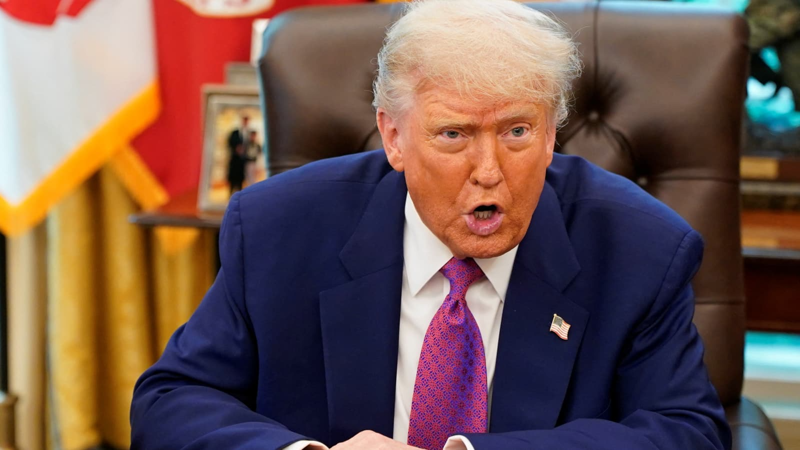
The problem is not just that Trump himself belittles intelligence. His administration is also creating conditions in which senior officials tailor their assessments to please him. Secretary of Defense Pete Hegseth repeated Trump’s hyperbolic claims of obliteration, brushing aside his own intelligence agency’s report. The White House press secretary, Karoline Leavitt, said the “alleged ‘assessment’ is flat-out wrong.” Gabbard and John Ratcliffe, director of the Central Intelligence Agency, quickly claimed to find “new intelligence” to support Trump’s interpretation of events but declined to share it publicly.
Increasingly staffed by loyalists rather than seasoned professionals—one critical counterterrorism office in the Department of Homeland Security suddenly found itself under the command of a recent university graduate with no national security experience—intelligence agencies risk becoming overly politicized, providing justification for policy decisions rather than informing them. Meanwhile, the United States faces serious national security threats, not least a heightened terrorism threat as Iranian-backed groups seek retaliation for the United States’ strikes on Iran. Whether it results in a terrorist or cyberattack, a foreign policy miscalculation, or a military surprise, the consequences of an intelligence failure could be profound. And the risk is only growing.

HEAR NO EVIL
Intelligence failures are inevitable even in healthy systems. Uncovering and properly assessing secrets is hard at the best of times; human fallibility guarantees that there will be errors in process and analysis. But distortions within the system increase the likelihood of failure. The classic case is an authoritarian regime in which the self-assured ruler does not tolerate other views. Intelligence officers in such systems operate in an environment where speaking truth to power is not tolerated, acquiescence is preferred over expertise, sycophancy trumps insight, and “alternative facts” must be presented to maintain the leader’s preferred narrative. Offering good-faith assessments that contradict the ruler’s views is considered disloyalty and invites punishment. Without space for analytical dissent and the presentation of unvarnished views, leaders can receive and act on faulty intelligence, as the hapless Naryshkin could attest.
The United States today faces a similar risk. Trump’s populism is characterized by deep skepticism toward credentialed authority and an intolerance of experts who present inconvenient facts or analysis that challenge his movement’s core beliefs. As authoritarian leaders do, Trump has surrounded himself with loyalists who pass ideological litmus tests, such as by insisting that the 2020 election was “stolen” from Trump. The resulting culture of politicized analysis, self-censorship, and suppression of unwelcome truths mirrors the conditions in autocracies that generate intelligence failure.
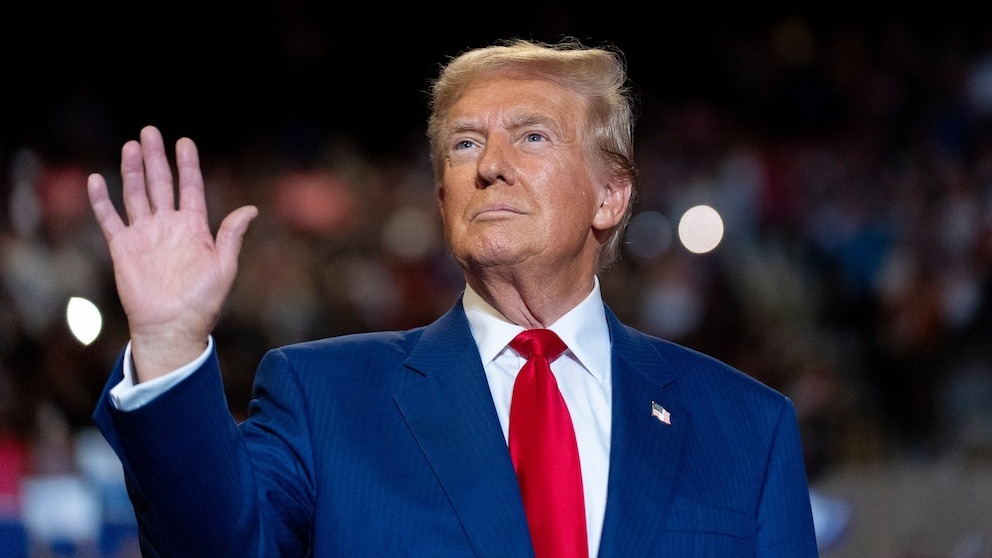
The most important qualification to serve Trump is personal loyalty, not competence or relevant experience. Of course, a U.S. president should be able to expect a degree of loyalty from federal employees. But the expectations of the Trump administration place personal allegiance above the truth. Several long-serving professionals have been asked who they voted for as a prerequisite for traditionally apolitical national security positions—a kind of loyalty test that disqualifies capable officers and sends a message to those who remain that continued service means compliance.
Loyal senior intelligence officials serving a populist or an autocrat will often tailor their agencies’ activities on the basis of what the leader may or may not want to hear. This can cause intelligence resources to be directed away from actual threats. As director of the Federal Bureau of Investigation, for instance, Kash Patel has reorganized the agency to divert special agents and analysts toward immigration enforcement and the reduction of violent crime, leaving investigations into threats with more serious national security implications—counterterrorism, cybercrime, Chinese or Russian intelligence activity in the United States—underresourced. Although curtailing violent crime is a laudable goal, protecting U.S. national security requires that the FBI and other agencies manage a far wider array of risks.
This is not the only example of the Trump administration’s sidelining or shuttering intelligence units that focus on foreign malign influence operations, nor is it the only redirection of resources away from serious threats to serve political interests. In early May, Gabbard directed U.S. intelligence agencies to increase their intelligence collection in Greenland, specifically to assess the strength of the island’s independence movement. Greenland, an autonomous territory of a NATO ally, is not a security threat to the United States; the reason for gathering such intelligence is to support Trump’s proposal that the United States annex the island. Intelligence agencies do not have unlimited bandwidth. If they are wasting valuable resources on nonexistent threats or dubious schemes to take control of other countries’ territories, they are more likely to be surprised by the plans and intentions of adversaries such as China, Iran, and Russia.
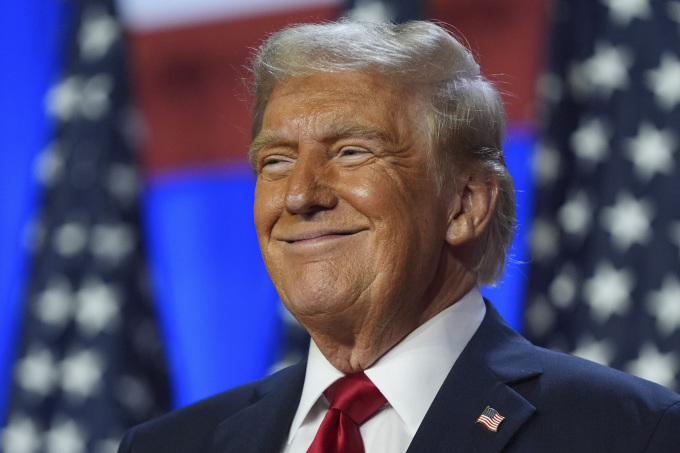
AIMING TO PLEASE
Politicians are always tempted to strip out caveats, overstate analytical confidence levels, or downplay dissenting views, as Trump did when he dismissed as “inconclusive” the DIA’s initial report on damage to the Iranian nuclear program. His is not the first U.S. administration to prefer intelligence that fits around a particular policy narrative. In the late 1960s, frustrated with the United States’ lack of progress during the Vietnam War, President Lyndon Johnson preferred the Pentagon’s rosier assessments of the war’s trajectory to the CIA’s more pessimistic views—which distorted his understanding of the war and caused him to hold out false hope for a failing escalation strategy. And in 2002, Secretary of Defense Donald Rumsfeld set up the Office of Special Plans in the Pentagon to establish a link between Iraq and al-Qaeda—a connection the CIA did not find credible—to support the case for a U.S. invasion of Iraq.
In both cases, cherry-picking intelligence led U.S. presidents toward strategic failure. But the lessons of history have apparently been lost in the present White House. In May, Gabbard fired the acting chair of the National Intelligence Council and his deputy after they assessed that the Venezuelan-based criminal group Tren de Aragua was not controlled by the Venezuelan government, contrary to the claim the Trump administration has used to justify its deportation of Venezuelans. When they first reached this conclusion, Gabbard’s chief of staff, a Trump loyalist, asked the council to “relook” at the evidence and “do some rewriting” so that the assessment would not be “used against” Gabbard or Trump—a nakedly political request. The NIC leaders broadly maintained their initial judgment rather than amend their assessment to suit the president’s policy, and it cost them their jobs.
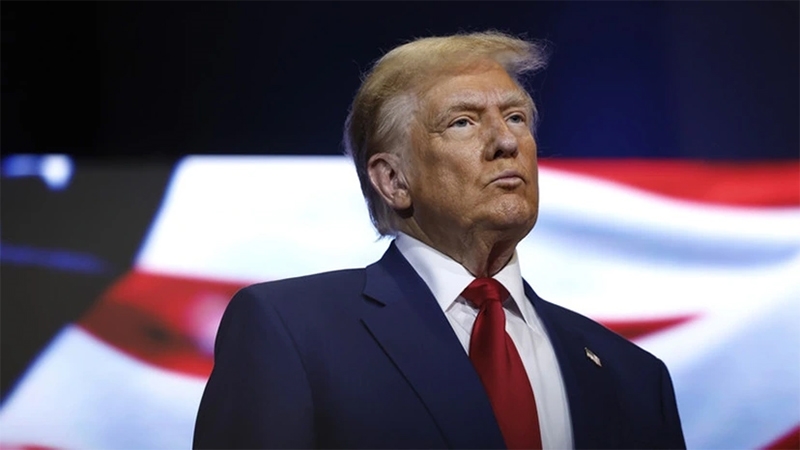
It is easy to foresee how firing intelligence officials for making evidence-based assessments could drive those still serving to engage in self-censorship and groupthink, both key ingredients in intelligence failure that are prevalent in autocratic systems. Brave analysts may no longer be willing to stick their heads above the parapet to provide intelligence that Trump needs to know, even if he doesn’t want to hear it. And if the president only receives assessments designed to please him, he will become stuck in his own echo chamber, unable to make fully informed decisions based on hard reality.
The blatant politicization of intelligence has consequences beyond the halls of the White House. During the dark days of the Bush administration’s clamor for war in Iraq, the U.S. intelligence community lost credibility not only with the American people but also with partners abroad. The same corrosion of civic trust and falling confidence of allies is underway today. If the United States’ allies and partners consider U.S. intelligence untrustworthy or worry that their own intelligence may become politicized, they may choose to share less with Washington, which could rob U.S. intelligence agencies of a vital clue they may need to foil a plot or understand a key development. Cooperation with foreign agencies is a central part of U.S. intelligence gathering. Washington itself has enormous capabilities, but it cannot replace the collection and analysis provided by its partners.
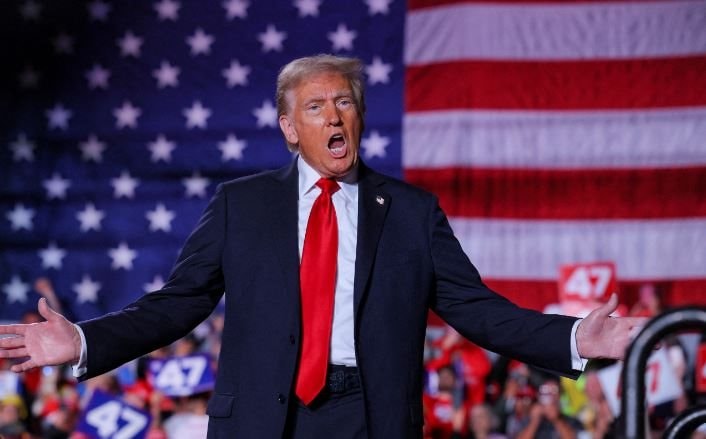
SHOOT THE MESSENGER
While publicly claiming that its actions are meant to depoliticize U.S. intelligence agencies, the Trump administration has in fact politicized them further by pressuring them to produce assessments that reinforce preferred policy narratives, dismissing assessments that don’t, purging staff members who are perceived to be disloyal, and harassing the workforce through methods such as random polygraph tests conducted under the guise of leak investigations. It is clear to members of the civil service that their positions are subject to the administration’s whims. Like the NIC leaders, they could be fired for simply doing their jobs. Like staff members working in diversity, equity, and inclusion offices, they could be fired for doing a job the administration did not want done. Like six National Security Council staffers who were let go after Trump met with the far-right activist Laura Loomer, they could be fired for perceived disloyalty. Or, like the director and deputy director of the National Security Agency, they could be fired for no stated reason at all.
Administrative chaos masquerading as cost-cutting has sapped morale. In March, Trump’s adviser Elon Musk and his Department of Government Efficiency staffers visited the CIA and the NSA headquarters, sending shivers down the spines of career professionals. Shortly afterward, both agencies announced thousands of job cuts, mostly in the form of rescinded job offers, layoffs of new hires, routine retirements, and voluntary buyouts. The buyout offer enticed several senior intelligence officers out of public service, although many stated privately that the offer only made the difficult decision to resign easier to swallow. Not only does their premature departure deprive the administration of their expertise and experience, but the cancellation of job offers means they will not be replaced by promising young officers brimming with passion and patriotism.
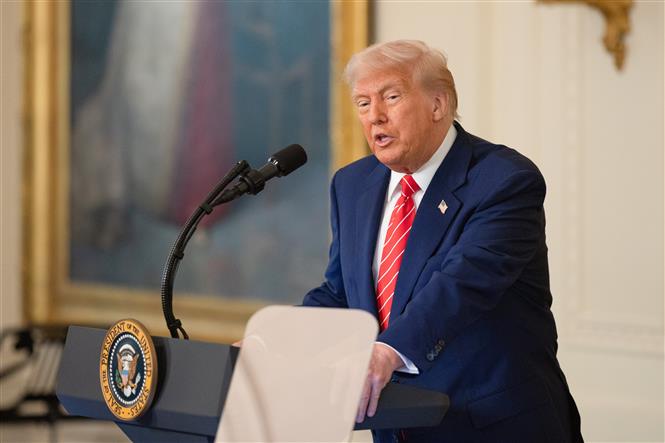
Ideally, intelligence agencies should welcome and harness talent from all corners. Narrowing the talent pool robs the country of the opportunity to tap the full potential of its citizens, undermining the potential contributions of intelligence to statecraft. In the Soviet Union, only Communist Party members were permitted to join the primary intelligence agency, the KGB. That commitment to Marxist-Leninist ideological purity damaged the KGB’s analytical performance: the agency routinely underestimated the resilience of Western cohesion and overestimated the strength of Soviet client states and revolutionary movements. During World War II, British intelligence benefitted from Alan Turing’s codebreaking genius in part because he kept his homosexuality hidden. Unfortunately, the Trump administration is repelling talent by making it clear that it no longer values diverse perspectives in U.S. intelligence agencies. Instead of simply reassigning officers who had had been temporarily detailed to work on DEI initiatives in the CIA and the Office of the Director of National Intelligence, the administration fired them when those initiatives were shut down, sending the message that it expects ideological conformity.
A U.S. intelligence community that increasingly operates like that of an autocratic country will struggle to retain employees and recruit new ones. At the moment, public service may not look appealing to America’s best and brightest. Worse, the current workforce is demoralized and distracted by the purges and the abuse of the system that they witness. Thousands of intelligence officers are tapping their professional networks and getting their secret resumes cleared so that they can apply for private-sector jobs. A nervous and preoccupied workforce will hardly deliver peak performance.
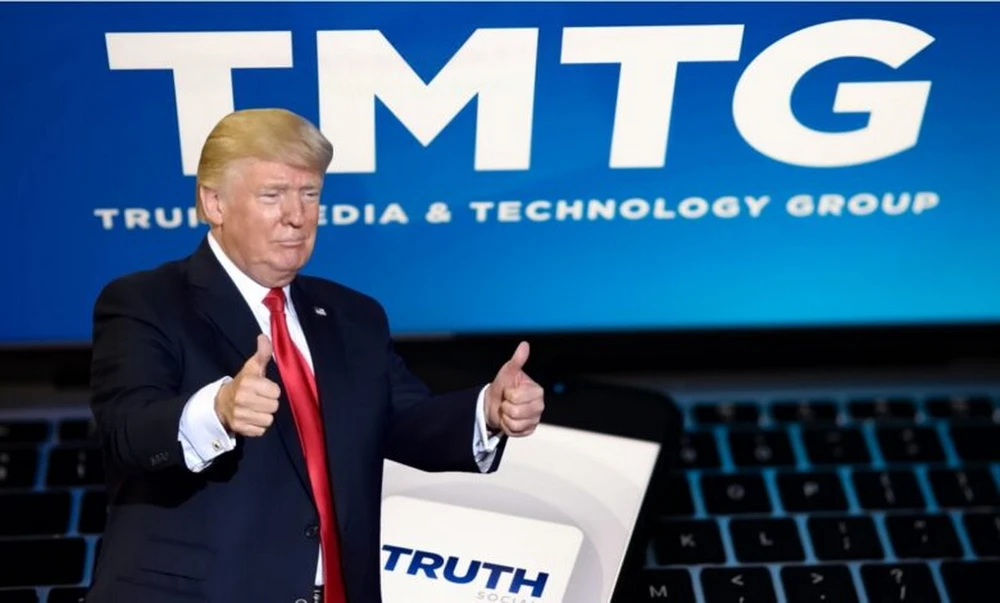
The Trump administration’s proximity to conspiracy theorizing also corrodes its relationship to intelligence. Loomer, whose meeting with Trump prompted several high-profile intelligence agency firings, is known for promoting conspiracy theories, including the unsubstantiated claim that the 9/11 attacks were an “inside job.” Other members of the Trump administration, such as Dan Bongino, the deputy FBI director, have openly floated conspiracy theories accusing the “deep state” of withholding the truth from the American people on every topic from the prison death of the criminal defendant Jeffrey Epstein to the assassination of President John F. Kennedy. No genuine conspiracies have been uncovered, but the vilification of U.S. intelligence agencies deemed part of the “deep state” has a lasting effect on the perceived legitimacy of the work they do.
Demonizing intelligence ultimately makes the United States less safe. Intelligence agencies need the support of the public if they are to do their jobs well. Federal law enforcement, for instance, relies on tips from citizens; repeatedly calling the FBI “irredeemably corrupt”—in the words of its deputy director—may dissuade people from cooperating when approached by special agents. And if Trump-aligned media outlets are spouting populist rhetoric about the threat from within—specifically, the threat that federal law enforcement and intelligence agencies pose to civil liberties—politicians may find it difficult to support legislation that enables necessary intelligence gathering. Early last year, when it came time to reauthorize Section 702 of a 2008 amendment to the Foreign Intelligence Surveillance Act, a key provision that permits the U.S. government to surveil foreign citizens outside the United States, the same people who are now leading the FBI joined far-right media outlets to misleadingly paint the law as providing Orwellian power to an unaccountable deep state. The provision was eventually renewed for two more years, but the episode illustrated the vulnerability of intelligence agencies’ most valuable tools to exaggerated political rhetoric.
THE SHAPE OF FAILURE
Trump is not a born intelligence consumer. Judging by the infrequency of his briefings in this area—his public schedule has not included more than one per week, in contrast to the six per week that his predecessors typically received—he seems uninterested in the advantages good intelligence can confer. He operates on instinct and often justifies his polices as “common sense,” which is the sort of populist heuristic approach that does not align with the methodical process of intelligence analysts. Trump prefers slogans over substance, narrative over nuance, and conspiracy over curiosity. He avoids digging into details. His ideological positions run headlong into empiricism, as the administration’s fight with economists over the effects of its tariff policy has shown. Trump seems to value intelligence only when it validates his own instinct; he does not look to it to challenge his beliefs or to help him consider different angles.
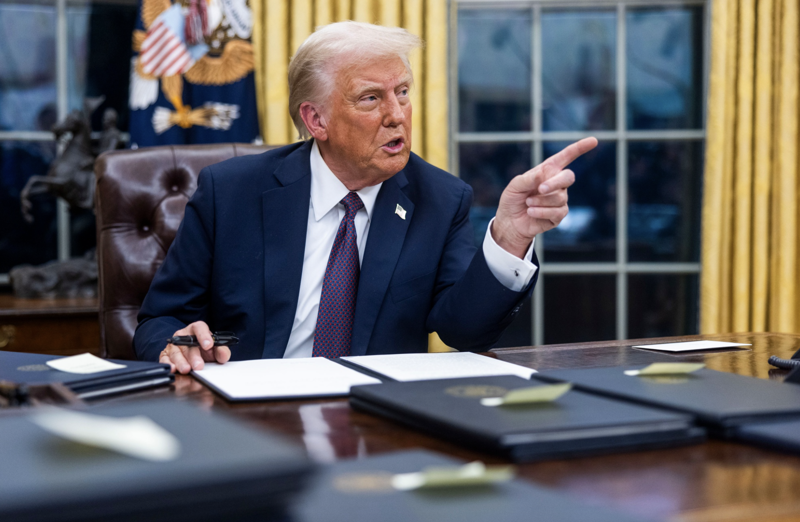
The way the Trump administration is managing the U.S. intelligence system increases the likelihood of an intelligence failure. It could take the form of a surprise attack, a misreading of an adversary, or an inability to anticipate another consequential event. Trump has ignored warnings before. During his first term, he was slow to respond to alerts about the spread of COVID-19, hindering the United States’ early pandemic response, and he was dismissive of the security risks of aggressive homegrown nativism presented to him by intelligence analysts at the FBI and the Department of Homeland Security in the lead-up to storming of the U.S. Capitol on January 6, 2021.
Something similar could happen today. Warnings repeatedly dismissed with prejudice may eventually stop arriving. Intelligence may fail because critical information may not reach Trump. Fear of retribution could cause officials to self-censor or avoid providing assessments that may provoke an ideologically motivated backlash, such as alerts about domestic violent extremism among far-right groups or about Russian information operations. As the former senior CIA analyst Brian O’Neill wrote in Just Security last month, “the next intelligence failure will not be a surprise. It will be a choice.”
An intelligence failure on his watch may not compel Trump to fix the problems that caused it. Instead, he could blame U.S. intelligence agencies for falling down on the job or even falsely suggest that they were always out to get him. Any reform his administration introduced after an intelligence failure would likely be designed to further politicize the intelligence community, weaken its independence, and give the executive branch greater control of its budgets, personnel, and authorities.
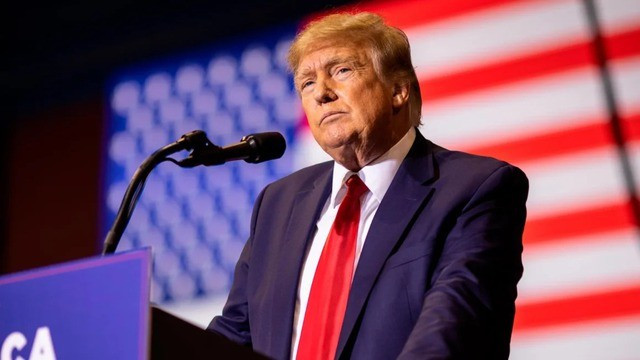
A talented sports team coached badly can still squeak out a win. If the United States avoids a major intelligence failure in the next few years, it will be thanks to the enduring professional ethos of its intelligence agencies. But those agencies will not be reaching their highest potential; if they are consistently misused, ignored, and politicized, they will not be able to produce the information advantage that the intelligence community was designed to deliver to the U.S. president. Trump is enamored of the United States’ natural resources—its oil and natural gas, its timber, its agriculture. The country’s unparalleled intelligence community is another precious resource, a pillar of the “greatness” Trump strives for. Ensuring American security today and for future generations depends on his good stewardship of this national treasure.


























:max_bytes(150000):strip_icc():focal(754x379:756x381):format(webp)/chow-chow-bowling-green-subway-70ac9e829e20441a978d9f05a1085374.jpg?w=1200&resize=1200,0&ssl=1)
:max_bytes(150000):strip_icc():focal(725x300:727x302):format(webp)/Bridget-Garrison-dogs-tally-karma-01-021926-5f803803830d4771a5d48258b325f341.jpg?w=1200&resize=1200,0&ssl=1)


:max_bytes(150000):strip_icc():focal(749x0:751x2):format(webp)/Dog-missing-in-Colorados-mountains-for-43-days-reunited-with-owner-thanks-to-Summit-Lost-Pet-Rescue-022426-0ebb1d6502764f8eb20d846307727ad0.jpg?w=1200&resize=1200,0&ssl=1)
:max_bytes(150000):strip_icc():focal(743x471:745x473):format(webp)/Abandoned-Dog-at-Airport-022126-d755d65eb323443bade62469ed85c911.jpg?w=1200&resize=1200,0&ssl=1)
:max_bytes(150000):strip_icc():focal(749x0:751x2):format(webp)/rescued-dog-1-030226-b2d2c821a5d74691ba8edd4e8f76508d.jpg?w=1200&resize=1200,0&ssl=1)
:max_bytes(150000):strip_icc():focal(1211x776:1213x778):format(webp)/cats-rescued-22626-91b98a0bd7254a93a6bbf1a223dac5b0.jpg?w=1200&resize=1200,0&ssl=1)
:max_bytes(150000):strip_icc():focal(736x185:738x187):format(webp)/abandoned-puppies-01-021126-de716b3fef81415bb0669b390e8abddd.jpg?w=1200&resize=1200,0&ssl=1)
:max_bytes(150000):strip_icc():focal(749x0:751x2)/Irish-setter-gives-birth-to-record-17-puppies-030326-43c2927d84ed4a59880b16c2c8fdd530.jpg?w=1200&resize=1200,0&ssl=1)





:max_bytes(150000):strip_icc():focal(899x646:901x648)/Tatiana-Schlossberg-Jack-Schlossberg-030126-02-ffbc8841a935444d9a68bdeab3cfe504.jpg?w=1200&resize=1200,0&ssl=1)
